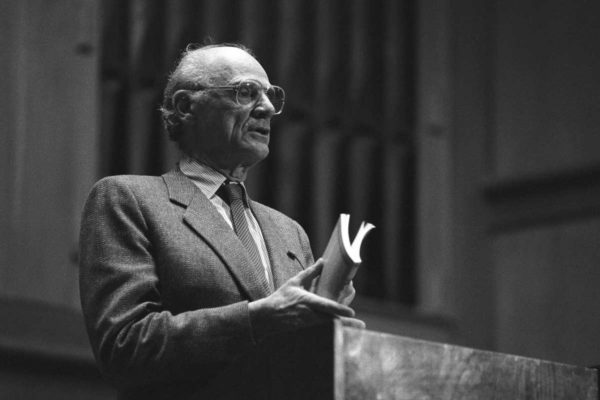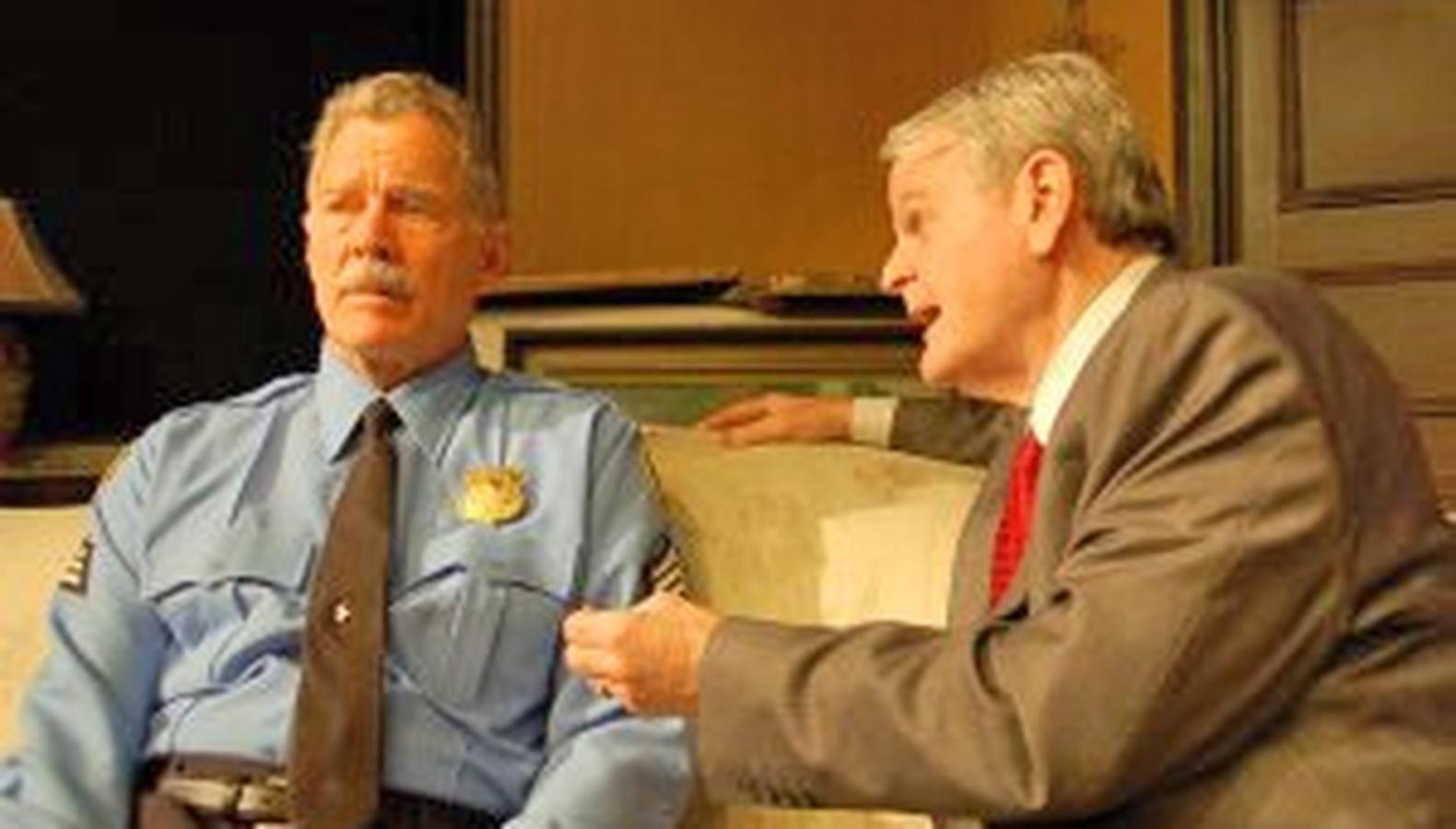

Miller maintained he wrote “The Price” as a response to the war in Vietnam and that it was not based on his own relationship with his brother, who dropped out of college to shore up the imperiled family business. Though Derek McLane’s set boasts a view out over the roofs of Manhattan, hinting at something symbolic and substantial, the play never quite escapes the room, narrowing to a quarrel about personal choices made in the past.

Kinney’s quieter, more faithful style emphasizes the fine roles for actors but doesn’t make a strong case for the play itself. Recent Miller productions on Broadway have goosed the plays with counterintuitive casting, like the Mike Nichols “Death of a Salesman,” with its young Willy and reedy Biff, or radical staging, like the Ivo van Hove productions of “The Crucible” and “A View from the Bridge.” Mr. At one point Solomon tells her, “Darling, why don’t you leave it to the boys?” and “The Price” treats her with a similar condescension, sidelining her in her pert pink suit while the brothers argue, stranding her with domestic concerns while they debate moral philosophy. And if you believe that old quip defining good acting as not bumping into the furniture, then hand them a couple of Tonys.

These are both thoughtful, textured performances. His arms and hands reach high, his voice rises until it cracks. Shalhoub meanwhile keeps straining upward. Ruffalo’s body looks slumped and stunted, his speech a mumble. Ruffalo’s epaulets and helium lifts in Mr. Here, it’s as if the costume designer Sarah J. Shalhoub seems to gravitate toward more rarefied roles. Ruffalo has a line in Everymen, whereas Mr. Both are intensely likable actors, though Mr. Ruffalo - a late replacement for John Turturro - and Mr. Under Terry Kinney’s direction, so, too, are Mr. Walter, a successful surgeon in his fine camel coat, and Victor, an undistinguished patrolman in his clumsy uniform, are placed in opposition. Victor winds up an old phonograph and puts on a novelty record of people laughing. Chests jostle with tables sofas and wardrobes tumble together. Yet it shows “The Price” as a smaller, more stolid work than it wants to be - still just a little out of style.Īs the play opens, Victor Franz ( Mark Ruffalo), a policeman 28 years on the beat, arrives at the attic of a Manhattan brownstone mounded with dusty furniture. Sympathetically directed and ardently acted, there’s much to enjoy in this Roundabout Theater Company revival, which opened Thursday night at the American Airlines Theater. Women might owe things, too, but that was rarely Miller’s concern.

It plucks the slipcovers off the autobiographical material that Miller worked over for so much of his career - what sons owe to fathers, what brothers owe to each other, what the world owes to men of reasonable integrity. Either way, AFTER THE FALL is a painful insight into what I can only imagine was the best of times and worst of times for both.Arthur Miller’s “The Price,” from 1968, is a tragedy disguised as a rummage sale. After the death of their father, two brothers face each other, their past and the consequences of their career decisions. Miller rarely spoke of Monroe in real life and it's hard to decipher whether either of these individuals actually loved one another or confused their lust for gain. With David Burns, Colleen Dewhurst, George C. It's basically Miller touching on the low points of his success and failures and how he tries to reconcile and excuse himself from fault. It's clear to all that Quentin IS Miller and Maggie is the doomed Marilyn, but Monroe fans needn't get excited about MIller dishing on the entirety of his marriage to MM. Miller was a genius and often rambles on about subjects the ordinary reader, most likely looking for more of Marilyn than they'll get, will not comprehend if you're unfamiliar with Miller's life. For others interested in this short play, I do recommend finding a live version. I don't think I would've enjoyed reading this.
#Good arthur miller the price script full#
This Audible version has a full cast and a live audience and the listener has a better understanding of Miller's torment (its not all about Marilyn): a child trying to live up to his mother's expectations, the Communist hearings when threatened with naming other party members, his perceived failures as a great author and playwright, and his failure as a loyal husband. Miller exercises his demons in AFTER THE FALL, covering many topics that he considered his fall from grace. As Miller intended this when written, I opted to listen to an Audible presentation of the play starring a young Anthony LaPaglia as Quentin and Amy Brenneman as Maggie.


 0 kommentar(er)
0 kommentar(er)
